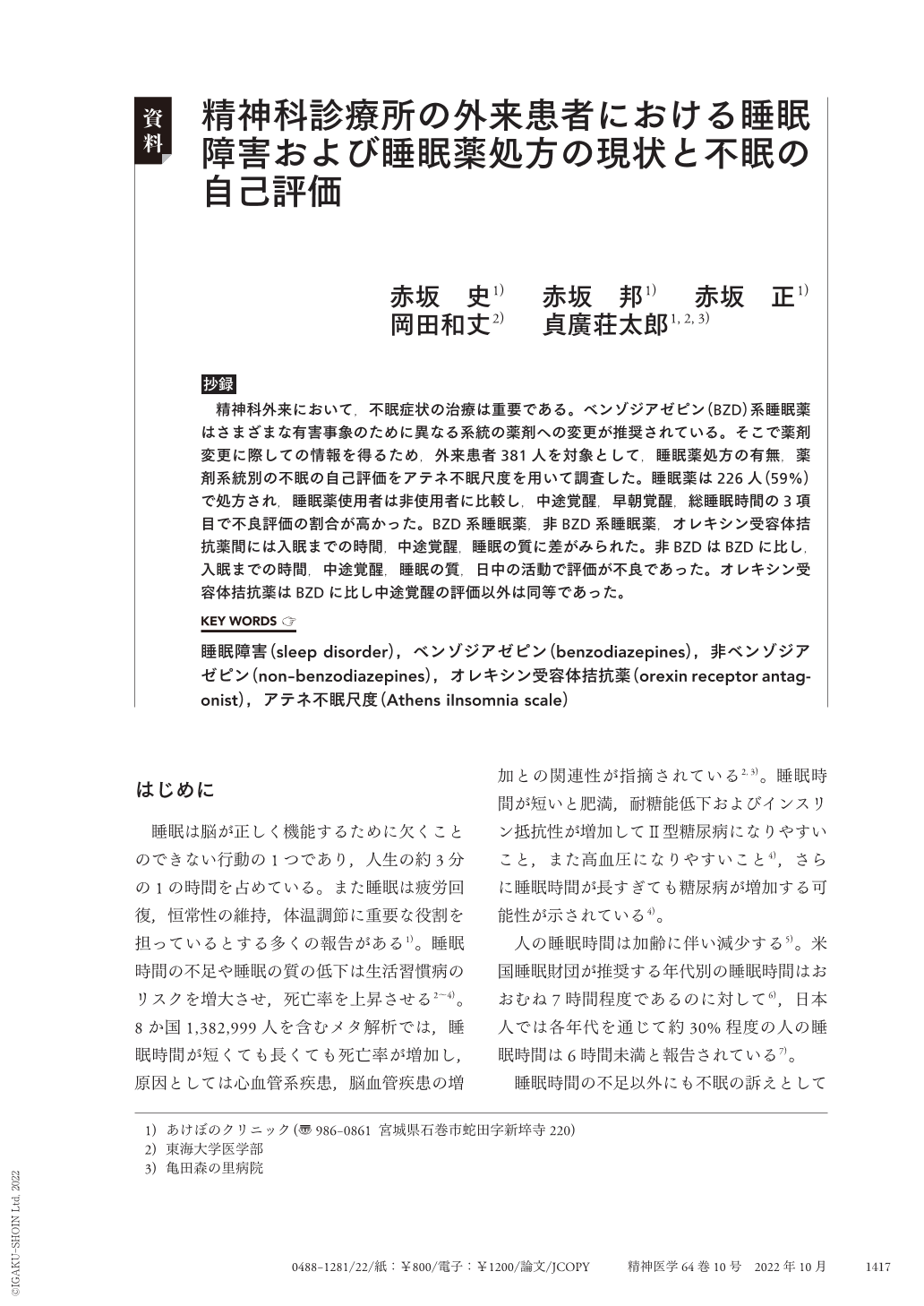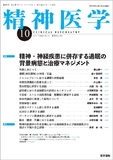Japanese
English
- 有料閲覧
- Abstract 文献概要
- 1ページ目 Look Inside
- 参考文献 Reference
抄録 精神科外来において,不眠症状の治療は重要である。ベンゾジアゼピン(BZD)系睡眠薬はさまざまな有害事象のために異なる系統の薬剤への変更が推奨されている。そこで薬剤変更に際しての情報を得るため,外来患者381人を対象として,睡眠薬処方の有無,薬剤系統別の不眠の自己評価をアテネ不眠尺度を用いて調査した。睡眠薬は226人(59%)で処方され,睡眠薬使用者は非使用者に比較し,中途覚醒,早朝覚醒,総睡眠時間の3項目で不良評価の割合が高かった。BZD系睡眠薬,非BZD系睡眠薬,オレキシン受容体拮抗薬間には入眠までの時間,中途覚醒,睡眠の質に差がみられた。非BZDはBZDに比し,入眠までの時間,中途覚醒,睡眠の質,日中の活動で評価が不良であった。オレキシン受容体拮抗薬はBZDに比し中途覚醒の評価以外は同等であった。
Objective:Insomnia is one of the critical problems in patients who visited psychiatric clinic. Despite the mounting concern on the adverse events of benzodiazepines(BZD), it is difficult for both physicians and patients to reduce the dose or change into another hypnotic. Thus, in this study, we retrospectively investigated the current status of sleep duration, hypnotic use, and sleep satisfaction in psychiatric clinic outpatients.
Subjects and Methods:Among those who visited our clinic from June 2020 to February 2021, a total of 381 patients who were able to complete the questionnaire was included in this study. The Athens Insomnia Scale was used to evaluate their sleep status.
Results:Hypnotics were used by 226 patients(59%), including 98 patients with flunitrazepam, 52 with triazolam, and 29 with brotizolam for benzodiazepines(BZD);32 patients with eszopiclone and 29 with zolpidem tartrate for non-benzodiazepines(non-BZD);and 43 patients with suvorexant, which is an orexin receptor antagonist. The frequency of insomnia with a score of ≥6 on the Athens insomnia scale comprised >40% in all psychiatric diseases. Compared to non-users, those using hypnotics had significantly higher percentages of poor ratings in the following three items:difficulty maintaining sleep, early morning awakening, and total sleep time. There were significant differences in percentages of poor ratings of sleep induction, difficulty maintaining sleep, and sleep quality among BZD, non-BZD, and suvorexant users. Non-BZD users had significantly higher percentages of poor ratings in sleep induction, difficulty maintaining sleep, sleep quality and functioning during the day as compared to BZD users. Suvorexant users had significantly higher percentage of difficulty maintaining sleep compared to BZD users.
Conclusions:Non-BZD provided significantly poor outcomes than BDZ in sleep induction, difficulty maintaining sleep, sleep quality and functioning during the day according to the Athens insomnia scale. There was no significant difference between BZD and suvorexant except in difficulty maintaining sleep.

Copyright © 2022, Igaku-Shoin Ltd. All rights reserved.


